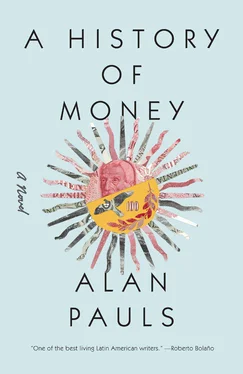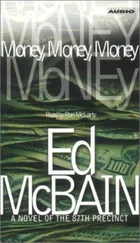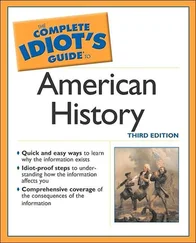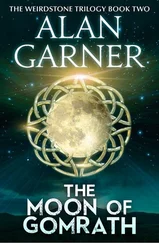How old must he be the first time he gets one of those marked notes — seven or eight? He’s on his way back from a newsstand, where he’s just bought himself a little blue block of bitter Suchard chocolate, his favorite candy, and while he’s organizing his change he suddenly comes across one of the prophecies written in extravagant biblical syntax that will worry him from that moment on, whether they’re frightening or benevolent. When this note passes into your possession, your luck will change, create seven in its likeness, Judas Thaddaeus … How strange it is to read money. And how frightening that your destiny might leap out of it, just as it leaps out of your coffee grounds or the lines on the palms of your hands. He stops next to the stand, slowing the passage of new customers, and while the first piece of chocolate melts in his mouth, he reads the supplication in a very low voice, absorbing, by mere contact with the note, a religious capital that he has never had nor will ever have. Asunción F., from the Los Roques archipelago, Venezuela, broke this chain and was fired from her job and two months later became sick and lost a leg and died. The fortunate lives, the stories of salvation— María Y. wrote this message on seven notes and went to Miami and today she has a house and three beautiful children, one a postmaster and one an engineer —never have any effect on him. He doesn’t even believe them. The tragic ones, on the other hand, have an intolerable realism that makes the whole device plausible. Those notes make such a marked impression on him that on the afternoon eight years later when, partly so as not to upset his mother and her husband, who are devastated by the episode, and partly to check whether what everyone says is true and death is the only thing that can soften the most passionate aversions, he leaves his school uniform on and goes to the dead crostini lover’s wake, he can’t help asking himself whether that might have been this man’s fatal mistake, a man of whom it’s not at all clear, today — and the question of what’s meant by today can be added to all the other unknowns — whether he was a hero or a traitor, fallen in the line of duty or a victim, a soldier or a double agent, a crook out for blood or a family man determined to avoid spilling any: Could it have been breaking a prayer chain that came to him on a lucky note, perhaps not so different from the one that fell into his own hands after he bought his little blue block of Suchard, that caused him to plummet to the bottom of the San Antonio River?
But of course, isn’t he himself the perfect counterexample? How many superstitious notes have fallen into his hands since then? Fifty? A hundred? He lets them all pass him by, and he’s still healthy, sane, and completely untouched by the massive, grisly tragedies they predict. It’s not that he’s never considered joining in. He’s even got to the point of sitting at the table with a note smoothed out in front of him and a pen in his hand, thinking about how to word his supplication. His own prayer. But he never does it. At the crucial, decisive moment, the idea of entering into such hazardous circulation frightens him more than the consequences of breaking the chain. Still, the idea lingers. He knows he’ll never do it, but even so, not a day goes by that he doesn’t pay for something and get his change back in small notes — the ones that creep closer to certain extinction with every day, every hour, every second, like endangered species — and start to search them, almost in spite of himself, for some of the illiterate cursive that still manages to be menacing though it’s worn by handling; not a day goes by that he doesn’t tell himself that someday he’ll make up his mind and take the plunge, someday he’ll write his prayer and send the note bearing his mark out into circulation, he’ll throw it into the anonymous sea of money where it’ll shine, unique; and someday, too, no doubt when he least expects it, years, maybe decades later, if the country ever emerges from the black hole that’s sucking it in and condemning its cash to periodic deaths, someone will pay him or will give him some change in notes and it’ll be like finding a long-lost twin, he’ll immediately recognize his own writing, the prayer written on that note by his own hand.
“Don’t worry. I don’t understand a word of it either,” his mother tells him, handing him a pen. “You have to sign down there, above where it says ‘Beneficiary.’ ” He hesitates for a second. He hates his signature. He’s hated it ever since the day he first realized he needed one and ended up choosing it hurriedly and without thinking, rushed by the police officer drumming his ink-stained fingers while waiting for him to sign the form to get his ID card. He has always hated it. And while he perfects it — between the first piece of crappy zoo art he decides to put his name on and his membership card for the Communist cinema — his dissatisfaction grows staggeringly complex and refined. Like an artist who invests his talent only in his worst flaws, he’s unbelievably faithful to this squiggle that he’s so ashamed of, which singles him out wherever he goes: twin lightning bolts, pointing to the right in perfect synchrony, like a pair of ice skaters caught in the middle of a routine. That’s him — but he recognizes himself in it even less than in the photos people take of him, which always seem determined, in such a childishly spiteful way, to give him some other idiot’s sickly sweet, evasive face.
He signs nevertheless, and the moment he does so he realizes something extraordinary: he’s rich. It’s true that he realizes it in a slightly abstract way, exactly like the way we understand, with total ease and, moreover, no sense of desperation, that we belong to such an inauspicious category as, for example, that of being mortal. He’s rich means that he will get two hundred thousand dollars — a hundred thousand for her, another for him, even though he’s only his stepfather — if the jumbo jet that takes them to Europe in a week decides to plummet into the middle of the Atlantic, or if a guardrail on the road between Barcelona and Cadaqués permanently interrupts the progress of the 1975 Giulia Sprint that his mother’s husband plans to hire to explore the Mediterranean coast. The mere idea of such a catastrophe is appalling, and in the fraction of a second that he spends thinking about it, allowing it to shake him, he sweats five times more than he does while running the fifteen laps of the gym the PE teacher sentences him to for forgetting his sports kit. But death is such a general hypothesis that it grows weak and fades, and moreover is eclipsed by the hypothesis of instantaneous wealth, which is so unexpected and now so near. True: something terrible would have to happen for it to come about. But at the same time, aren’t an aerial catastrophe or a lapse of concentration on a mountain road simpler and more accessible routes to wealth, at least for him, who hasn’t yet turned fifteen, than a whole lifetime of work, a redemptive business deal, a string of lucky nights at a casino, or a stroke of genius like the one the seven golden men have in the film that teaches him everything he knows and will ever know about bank robbery? Besides, it’s precisely the boundless brutality of the idea that stops him from picturing it, from unfurling a macabre post-collision tableau full of noise, flames, twisted metal, and severed bodies. (And even so, even though the tableau is truly unimaginable, some of its ferocity manages to seep through the cracks between the fingers he’s clamped together over his eyes to avoid seeing it, as he often does at the cinema during the first shots of surgery or of syringes full of heroin piercing addicts’ veins, and the glimpses of the disaster that seep through to him always feature his mother in the middle of the accident, still pinned to her seat by her safety belt, either dying or simply spaced out from the sleeping tablet she took on takeoff so she could sleep uninterruptedly during the flight — his mother, who blinks in annoyance, as though wondering who would be so rude as to disturb her sleep like this, looks around, notices the devastation all around her, and realizes that she’s going to die, and after straightening her hair a little thinks of him, and hopes with all her heart that he will make good use of the insurance money.) And so he invests all of the imagination he withholds from the mysterious conflagration the policy describes as an accident — the only technical term he remembers, which is just as ancient as the others but also imbued with a semantic indecision of the type that could survive any age with its power to disturb intact — in the idea of being rich — rich, rich, rolling in money! — and in figuring out insurance companies’ modus operandi when they put prices on the lives of the people they insure. If he thinks about it (and he does, the moment he stamps his monstrous signature on the bottom of the policy, while his mother, abruptly coming back to life, lets the towel around her head unravel like a snake and starts to dry her hair with it), why a hundred thousand dollars and not fifty, three hundred, a million? And why the same amount for his mother, who never wakes up before eleven and stays in bed with slices of fresh cucumber on her eyes and her face smothered in creams until well past noon, as for her husband, who gets up at dawn and spends his life twisting and turning down muddy country roads surrounded by sick cows, manure, and the smell of disinfectant?
Читать дальше












